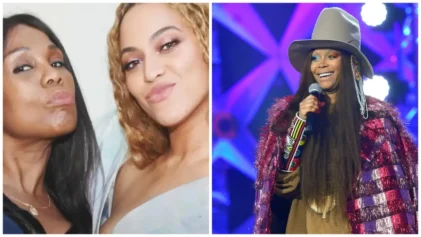Singer Erykah Badu SOURCE: SoulTrain.com
Singer-songwriter Erykah Badu recently came under fire for comments she made concerning adolescent girls and short skirts.
In a series a of tweets, Badu expressed her approval of a mandate that required school girls to wear knee-length skirts so as not to distract the male teachers. The mandate she was referring to came out of a high school in New Zealand. About 40 female students were called to assembly at Henderson High School, Auckland, and told to lengthen their skirts.
The singer pointed out that “we live in a sex-driven society” and as young women begin to grow and develop, it’s natural for men to be attracted to them.
“Consequently, we must all be aware and responsible,” Badu tweeted. “We must protect our young women. We must teach our young men…”
“But do I think it is unnatural for a heterosexual male 2b attracted to a young woman in a revealing skirt?,” she continued. “No. I think it is his nature.”
She then explained that both men and women experience periods of sexual arousal and that men are automatically “attracted to women of child-bearing age.”
Naturally, her comments caused quite a stir on social media. The Twittersphere erupted as users quickly clapped back at Badu for her bold statements. Some even claimed the singer’s opinions endorsed rape culture.
“Had to unfollow Erykah for that nonsense she was tweeting,” one user wrote. “Don’t make young girl’s responsible for older men’s actions.”
“Sex is about power not passion,” another added. “Clothing will not stop sexual assault. Slave girls wore long skirts. Stop victim blaming.”
Badu’s tweets only add to the ongoing conversation concerning women and rape culture. According to Southern Connecticut State University’s fact book on sexual misconduct, rape culture is perpetuated through misogynistic language, objectification of the female body and the glamorization of sexual violence. Primary examples of this include blaming the victim (“She was asking for it”) or trivializing sexual assault (“Boys will be boys”).
“I want my daughters to understand this,” Badu concluded. “I want them to be themselves and wear what they like, yet be aware. Not ignore our differences…”


